 Your new post is loading...
 Your new post is loading...

|
Scooped by
Gust MEES
|
When you hear the word blockchain does it make your head spin? Wall Street analysts and fintech experts claim it could make traditional banking obsolete; Airbnb just acquired a team of blockchain experts; and the country of Estonia will use it to secure a million patient health records.
But what exactly is blockchain, and what are its implications for higher education?
Originally created as the underlying database for bitcoin (the peer-to-peer digital asset and payment system), blockchain’s technology is now being seen as valuable and purposeful beyond the financial sector. The advantages blockchain provides to store information on a secure, permanent, historical ledger that can be both public and private will change how edtech applications approach student data. Learn more / En savoir plus / Mehr erfahren: http://www.scoop.it/t/luxembourg-europe/?tag=Blockchain http://www.scoop.it/t/21st-century-learning-and-teaching/?tag=blockchain

|
Scooped by
Gust MEES
|
Learning by Doing
Education, like life itself, should not be a spectator sport. Merely listening or even reading may create the illusion of learning, but without active engagement, retention of course material, or the ability to apply it, is laughably low. Students who engage in hands-on activities understand concepts more deeply and remember them more accurately.
Project-based, case-based, and team-based learning and problem-solving are activity-based approaches to teaching and learning, allowing students to become creators of knowledge rather than mere recipients of knowledge.
Students might annotate a text or play or work of art, map and analyze data, visually represent change over time, document a neighborhood or community. The web can then make student projects and research publicly accessible.
By learning by doing can take even richer forms. A solver community brings together students and faculty to “crowdsource” innovative solutions to the critical challenges of our time. Tackling a real-world challenge is a proven way to nurture a community of engage, creative learners. One of the broader goals is to transform a class of students into a knowledge network, an ongoing community that can continue to partner and share expertise and insights.
Then there are maker spaces. These are innovation greenhouses, incubators, or accelerators where innovators – whether faculty, students, staff, or others from outside the campus – can work individually or collaborative on projects in a supportive environment.
A new kind of student populates many campuses defined not by demographic characteristics, but by mindset and aspirations. Extraordinarily entrepreneurial, these students, in their spare time, create apps, found start-ups, and devise creative solutions to a host of pressing environmental, health, and technology problems. Learn more / En savoir plus / Mehr erfahren: https://gustmees.wordpress.com/2015/07/19/learning-path-for-professional-21st-century-learning-by-ict-practice/ https://gustmees.wordpress.com/2014/10/03/design-the-learning-of-your-learners-students-ideas/

|
Scooped by
Gust MEES
|

|
Scooped by
Gust MEES
|
Tech companies are denying giving direct access to the NSA. Does PRISM really give the NSA direct access to users' data?

|
Scooped by
Gust MEES
|
In the society that Orwell describes, everyone is under complete surveillance by the authorities, mainly by telescreens. The people are constantly reminded of this by the phrase "Big Brother is watching you", which is the core "truth" of the propaganda system in this state. Since the publication of Nineteen Eighty-Four, the term "Big Brother" has entered the lexicon as a synonym for abuse of government power, particularly in respect to civil liberties, often specifically related to mass surveillance.

|
Scooped by
Gust MEES
|
The Electronic Freedom Foundation calls out Sonic.net for actively protecting personal data from the government, and Verizon, AT&T and Apple for, well, not.

|
Scooped by
Gust MEES
|
The NSA and FBI directly tapped central servers belonging to nine U.S. internet firms, in order to get a constant feed of audio, video, photos, emails and documents as well as connection logs, according to a new report.
Confidence that a 'one size fits all' global economy and that the 'Western canon' of knowledge are sufficient to see humanity through the next phase of its transformations and adjustments has diminished dramatically over the past years.
We have an economic system that is certainly not a tide that floats all boats. We have challenges to the dominance of traditional knowledge claims as well. What does this mean for higher education, for social responsibility and for the way forward?
Via Ana Cristina Pratas
TeamSHATTER reports on data breaches in the higher education vertical throughout the United States.
The past year has seen a substantial uptick in the amount of total records breached. In 2012, there was a dramatic increase in the total number of reported records affected (1,977,412), but a relatively low amount of institutions (51) that reported breaches. In fact, the past year has seen the most reported compromised records in the higher education sector since 2006, based on data since tracking began in 2005.
|

|
Scooped by
Gust MEES
|
It’s comforting to think that our intelligence isn’t reducible to a single number. Indeed, especially in education circles, the theory of multiple intelligences is widely embraced.
In today’s interview, part of a series called "The Eminents," I spoke with that theory’s creator, Howard Gardner. We spoke not only about that but about his current work examining U.S. higher education and ethical issues in the professions, including psychology.
Howard Gardner is the Hobbs Professor of Cognition and Education at Harvard. He received a MacArthur "Genius Grant," and has received honorary degrees from 31 colleges. He’s twice been selected by Foreign Policy and Prospect magazines as one of the world’s 100 most influential public intellectuals. He has written 30 books that have been translated into 32 languages Learn more / En savoir plus / Mehr erfahren: http://www.scoop.it/t/21st-century-learning-and-teaching/?tag=Howard-GARDNER

|
Scooped by
Gust MEES
|

|
Scooped by
Gust MEES
|
We have a generation of college graduates at risk and we need solutions now. No other entities or organizations in the country are better suited or better equipped to deal with this insidious problem than our revered institutions of higher education. With the national unemployment rate lingering well above 7 percent for the last four and one-half years, many are wondering if high unemployment is now the "new norm" in the United States. And if this is the case, should we expect more from our institutions of higher education? ===> Should we be asking them to do a better job of preparing graduates with specialized training and workforce-ready skills? <===

|
Scooped by
Gust MEES
|
Here's a brief summary of what we know, what we don't know, and how you can at least try to protect yourself from surveillance.

|
Scooped by
Gust MEES
|
The National Security Agency's PRISM program tapped directly into the servers of most of the web's largest companies, monitoring our search history, the content of emails, file transfers, and live chats, The Guardian alleges.

|
Scooped by
Gust MEES
|
Die Aufregung in den USA ist groß: Der US-Geheimdienst NSA soll Millionen von US-Internetnutzer bespitzelt haben und sich dazu einen direkten Zugriff auf die Server der neun größten US-Internet-Unternehmen verschafft haben.

|
Scooped by
Gust MEES
|
• Top-secret Prism program claims direct access to servers of firms including Google, Apple and Facebook • Companies deny any knowledge of program in operation since 2007

|
Scooped by
Gust MEES
|
The best blogs on MOOCs, cloud computing, mobile learning, social media, digital pedagogy and more.
|



 Your new post is loading...
Your new post is loading...

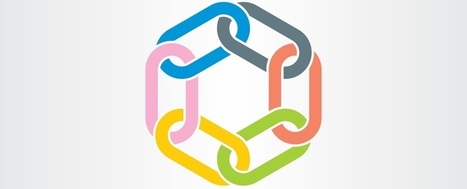

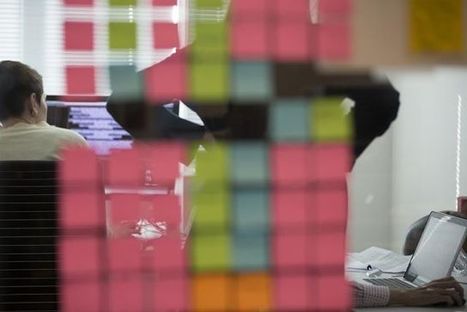




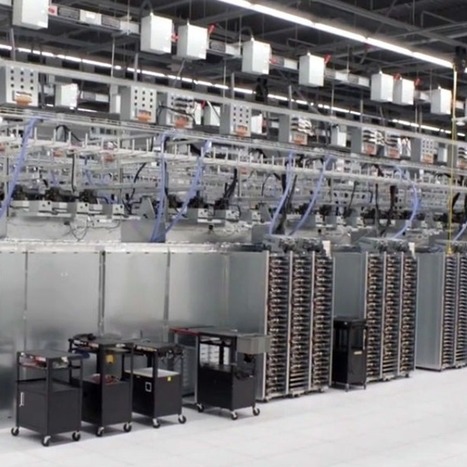


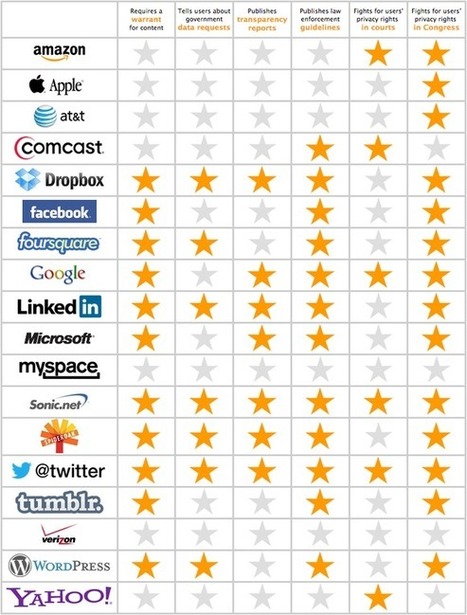

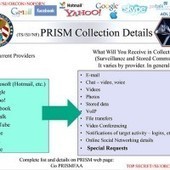




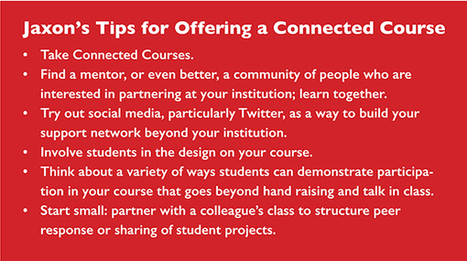




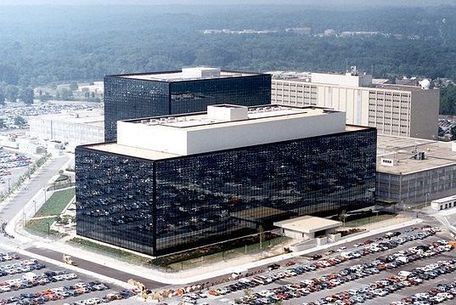








Learn more / En savoir plus / Mehr erfahren:
http://www.scoop.it/t/luxembourg-europe/?tag=Blockchain
http://www.scoop.it/t/21st-century-learning-and-teaching/?tag=blockchain